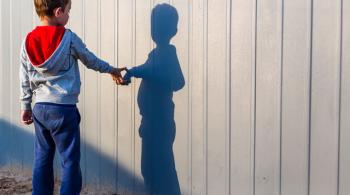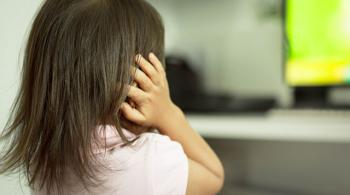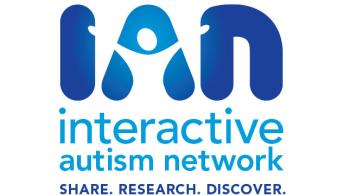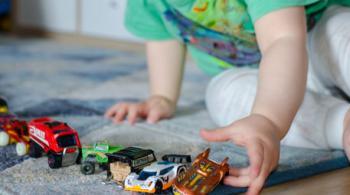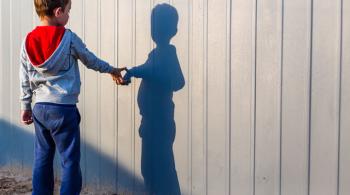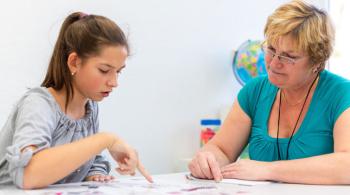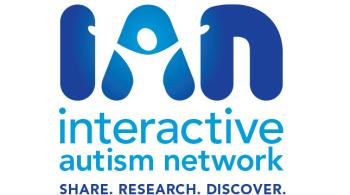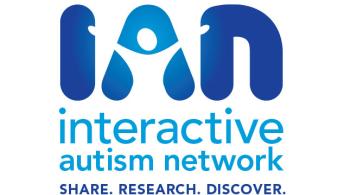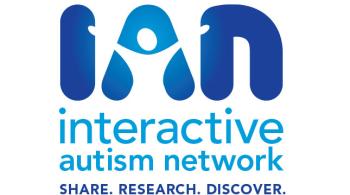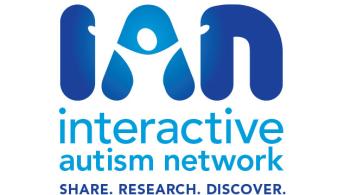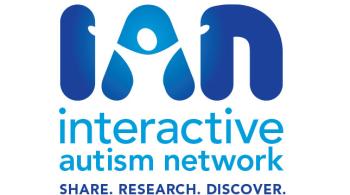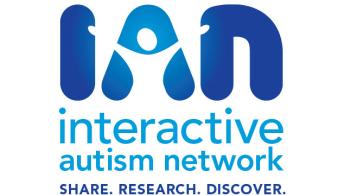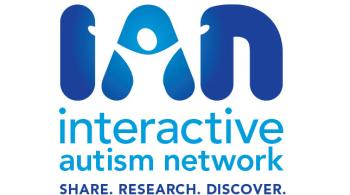Marina Sarris
Interactive Autism Network at Kennedy Krieger Institute
Date Last Revised: January 2, 2019
Date Published: April 6, 2017
Most parents experience stress, but for those raising children with autism, everyday life often brings Stress with a capital S. They need to keep their child from running away, manage meltdowns, wrangle with teachers about special education needs, avoid sights or sounds that overload his senses, and drive to therapists or doctors. And that's just what Monday looks like. They do all this while sleep-deprived. Many children with autism simply don't sleep well,1 so neither do mom and dad.
And those stresses don't necessarily end on a child's 18th or 21st birthday. Just ask Marilyn Cox of Missouri. "I can't say the stress is any less now than it was when my son was 3 years old," she sighs. That was four decades ago. Her son is 47, works, and lives at home.
Researchers have taken notice. More than a few studies report that parents of children with autism experience more stress than parents of typical-developing children,2-4 and parents of children with Down Syndrome.3,5
Simply put, too much stress is bad for parents' health. One research article summed it up: "Chronic stressors can wear down the body, particularly the cardiovascular, immune, and gastrointestinal systems."2 Highly-stressed parents also experience more mental health problems, including depression6,7 and anxiety.8
Many parents, so focused on their children's needs, don't stop to think about their own health. If that describes you, consider this: your stress affects your children, too. Many of you are strongly encouraged to be both parent and autism "therapist" at home. Research finds that highly-stressed parents have more trouble following their children's behavior plans9 and implementing autism interventions.10-11 That's not good for anyone.
Parenting Stress, Times Two
Cynthia Yeager, of Maryland, knows a thing or two about stress. The mother of boy-girl twins, she faced double the caregiving when they were babies, as mothers of multiples do. But in her case, both twins have autism spectrum disorder (ASD), and they didn't speak during early childhood.
"I think the most stressful thing was not being able to communicate with them when they were small," recalled Mrs. Yeager, a church music assistant. "There were a lot of tantrums from both of them because they couldn't express their needs. That was really hard when we took them out in public. People in the store would look at me like, 'Can't you control your children?'" The twins are now 18. Aaron communicates with sign language and picture symbols. Hayley, who speaks and has mild autism, attends college.
Many parents are familiar with the wilting glares and comments of strangers, as Mrs. Yeager describes. The unaware or ignorant may blame a child's meltdown or autistic behaviors on poor parenting. Research confirms that stigma – the negative social reactions and beliefs of others – increases stress for such parents.4,12 Stigma often brings along its cousin, social isolation. Some parents report that invitations stopped coming, due to worries about their child's behaviors, according to a study of families in the Simons Simplex Collection project. Families may even isolate themselves to avoid uncomfortable situations at social events.13,14
Besides stigma, other factors that can increase stress on parents include a child's:
- Challenging behaviors, including hitting, throwing things, head-banging and other forms of self-injury, repetitive behaviors, and tantrums.4,8
- Poor sleeping,1,12,15 and picky16 or disruptive eating habits,17 and
- Financial burdens. Parents of children with autism earn less – and work fewer hours – than people whose children have other health problems, or no medical problems at all.18 Families may struggle to pay for therapies that are not covered by health insurance or provided by schools.4,19-21
And So It Begins: Stress and The Toddler Years
For most parents, stress begins with that "something's wrong" moment when they realize that their child isn't talking, interacting, or playing like other toddlers. For Maria Ott, that realization came at a particularly stressful time, when she was an ocean away from family and friends in the United States. She had recently moved to Germany temporarily for her husband's work assignment.
She began wondering why daughter Hannah wasn't talking. Was she confused by the hearing German in the preschool she attended, or was it something more? Getting a diagnosis – and wondering if it was correct – posed the next hurdle. A doctor in Germany diagnosed autism, but experts back home in Maryland were not quite as certain.
The family is now living in Maryland, where Hannah, 6, receives Applied Behavior Analysis services for autism, and relatives live nearby to help. Ms. Ott still wonders why Hannah is not talking despite having relatively good social skills. Autism experts stress the importance of early intervention, so some families feel pressure to find the right combination of behavior, language, and sensory therapies, and school programs – and to do so quickly. "We've been on an odyssey of trying to figure out what's right for Hannah," Ms. Ott said. "Our stress level goes up and down depending on whether something's working for her, or not."
Ms. Ott has several ways of handling stress. For one, she refuses to let stigma isolate her family. She takes Hannah to stores and other places where her behavior or lack of speech might draw attention. The only way to teach her to function in such environments is to expose her to them, Ms. Ott said. "Fearlessness is our biggest stress reducer, and support systems have come as a result of that," she said. "You expose your vulnerability to the world with kindness and honesty, and good things will come to you." The family's openness in their community has paid off: they've found babysitters and playmates for Hannah through these encounters.
Why Do Some Parents Have More Stress?
Don't think you have to go at this alone.
Researchers wanted to know why some parents experienced more stress than others. Was it something about their children's type of autism – which can fall along a spectrum from mild to severe – their family's circumstances, or their own traits?
The short answer: all of the above, according to one group of researchers. They studied 283 Canadian women when their children were diagnosed with ASD, as well as two years later.22 (Sorry, fathers, most research focuses on mothers, usually because they are more likely to participate in studies.)
At the time of diagnosis, the mothers whose children had the most challenging behavior experienced the most stress. But over time, those with particular coping strategies had less stress. The moms who focused on getting help, solving problems, and finding meaning in their experiences weathered the parenting storms the best. Moms who tended to avoid their problems and emotions – called "disengaged coping" – suffered more stress.22
The proverb, "It takes a village to raise a child," also may be true here. Mothers who had a village, a network of supporters around them, experienced less stress than moms whose support systems were dysfunctional.
Amy Keefer PhD, a clinical psychologist at Kennedy Krieger Institute's Center for Autism and Related Disorders, has worked with parents who say they don't receive enough family support. "Maybe the parent's sister or brother feels they could not manage the child's behavior, so they are not included in family situations in the same way as other relatives, or their parenting is criticized. It might be a generational issue, where grandparents may have an opinion on their parenting, due to a lack of knowledge and exposure to autism, and generational differences in how we should respond to children's behavior."
Even people with supportive relatives say they benefit from creating a wide circle of encouragement and help. Mrs. Yeager recommends that parents reach out for support at their places of worship, local disability organizations, and child's school. "Don't think you have to go at this alone," the mother of twins said.
Besides cultivating a village, what other steps can parents take?
Researchers involved in the Canadian study pointed to several ways to reduce stress. Parents whose stress comes mostly from their child's behavior could be taught effective ways to manage meltdowns and other challenges. Some families would benefit from respite care – a temporary break from caregiving – and marriage counseling, if those are issues. Other parents could be taught better coping skills through cognitive behavioral techniques, or mindfulness training.22
Finding a Low-Cost Solution to Parenting Stress
Some families may not have the time and money for therapy, but one group of researchers tested a relatively low-cost solution: parent-led support groups. For the study, professionals taught and supervised parent-mentors to provide one of two therapies, mindfulness or Positive Adult Development (PAD). The mentors were themselves parents of children with disabilities.8
Researchers randomly assigned parents of children with autism and other developmental disabilities to one of the two therapy groups. The mindfulness group learned special breathing and relaxation techniques, meditation, and other exercises to improve coping. Meanwhile, parents in the PAD group learned to combat worry, conflict, and pessimism by identifying and using their strengths and abilities, and to perform exercises involving kindness, optimism, and gratitude.8
Both groups of parents saw significant reductions in stress, depression, and anxiety after six weeks of treatment.8 The mindfulness group members fared better with anxiety, depression, sleep, and their sense of well-being.
What does mindfulness look like? Let's say your child is having a meltdown in the store. First you realize and accept your anxiety and frustration, then you focus on how to respond to his meltdown, without letting your thoughts about the stares of other shoppers affect your decision-making, according to Dr. Keefer, who was not involved in the study.
"Acceptance" As a Path to Stress Relief in Autism
Another potential stress reducer is practicing acceptance, Dr. Keefer said. Parents who accept where their child is today seem to do better, in her experience, she said.
Unlike some other developmental disabilities, autism carries with it stories of "recovery," at least for a minority of people.23-25 The possibility of losing an autism diagnosis, usually through intensive therapies, creates hope for some families. But it also can fuel stress: some parents may pack therapies into every minute and worry that their child isn't improving quickly enough.
Dr. Keefer said focusing on the present can help. "I think the parents who do best are the ones who can celebrate each achievement and developmental gain as it occurs, and who aren't focused on an ultimate outcome of where the child needs to end up. These parents practice being 'in the moment' versus measuring progress against some ideal outcome."
A Walk in the Park, and Other Accounts of Resilience
We had the best time that day....
Mrs. Yeager remembers taking her twins to the park when they were young, a simple, everyday outing for most families. But for hers, frustration lurked around every corner. Would the children cry or wander away? Would they be safe on the play equipment? "We had the best time that day, with no crying and no problems," she recalled. She celebrated that victory by sending notes to the twins' teachers, thanking them for their efforts. Even now, a decade later, it's obvious she still savors that memory of a good day at the park.
Marilyn Cox, a veteran parent, has encountered many challenges, from problems with schools when her son was young, to problems with services and group homes in adulthood. Her son, 47, was born when autism was poorly understood and U.S. federal law did not yet require schools to educate students with disabilities. Her advice to young parents? Keep a sense of humor – and have hope. "I've learned to laugh a lot, even when the situation is not too funny," she said. "There's usually something that comes along that makes it better and more worthwhile." In other words, she's been practicing optimism for four decades.
The Interactive Autism Network thanks the parents interviewed for this article, all participants in IAN Research, for their help.
Additional Resources:
- See our related article about stress, Under a Looking Glass: What's the truth about Autism and Marriage?
- What are the benefits of mindfulness article on American Psychological Association website
- More information about Dr. Amy Keefer
References:
- Malow BA, Byars K, Johnson K, et al. A practice pathway for the identification, evaluation, and management of insomnia in children and adolescents with autism spectrum disorders. Pediatrics. 2012;130(2):106-124. Abstract.
- Miodrag N, Hodapp RM. Chronic stress and health among parents of children with intellectual and developmental disabilities. Curr Opin Psychiatry. 2010;23(5):407-411. Abstract.
- Hayes SA, Watson SL. The impact of parenting stress: A meta-analysis of studies comparing the experience of parenting stress in parents of children with and without autism spectrum disorder. J Autism Dev Disord. 2013;43(3):629-642. Abstract.
- Bonis S. Stress and parents of children with autism: A review of literature. Issues Ment Health Nurs. 2016;37(3):153-163. Abstract.
- Abbeduto L, Seltzer MM, Shattuck P, Krauss MW, Orsmond G, Murphy MM. Psychological well-being and coping in mothers of youths with autism, down syndrome, or fragile X syndrome. Am J Ment Retard. 2004;109(3):237-254. Abstract.
- Hastings RP. Child behaviour problems and partner mental health as correlates of stress in mothers and fathers of children with autism. J Intellect Disabil Res. 2003;47(Pt 4-5):231-237. Abstract
- Zablotsky B, Anderson C, Law P. The association between child autism symptomatology, maternal quality of life, and risk for depression. J Autism Dev Disord. 2013;43(8):1946-1955. Abstract.
- Dykens EM, Fisher MH, Taylor JL, Lambert W, Miodrag N. Reducing distress in mothers of children with autism and other disabilities: A randomized trial. Pediatrics. 2014;134(2):e454-63. Abstract.
- Kazdin AE. Child, parent and family dysfunction as predictors of outcome in cognitive-behavioral treatment of antisocial children. Behav Res Ther. 1995;33(3):271-281. Abstract.
- Osborne LA, McHugh L, Saunders J, Reed P. Parenting stress reduces the effectiveness of early teaching interventions for autistic spectrum disorders. J Autism Dev Disord. 2008;38(6):1092-1103. Abstract.
- Robbins FR, Dunlap G, Plienis AJ. Family characteristics, family training, and the progress of young children with autism. Journal of Early Intervention. 1991;15(2):173-184. doi:10.1177/105381519101500206 Abstract.
- Myers BJ, Mackintosh VH, Goin-Kochel RP. ‘‘My greatest joy and my greatest heart ache:'' Parents' own words on how having a child in the autism spectrum has affected their lives and their families' lives. Research in Autism Spectrum Disorders. 2009;3:670-684. http://dx.doi.org/10.1016/j.rasd.2009.01.004
- Fischbach RL. Do parents and scientists agree on ASD? https://iancommunity.org/webinar-views-parents-and-scientists-about-autism. Updated 2015. Accessed January 21, 2016.
- Kinnear SH, Link BG, Ballan MS, Fischbach RL. Understanding the experience of stigma for parents of children with autism spectrum disorder and the role stigma plays in families' lives. J Autism Dev Disord. 2015. Abstract.
- Johnson KP, Malow BA. Sleep in children with autism spectrum disorders. Curr Treat Options Neurol. 2008;10(5):350-359. Abstract.
- Levin L, Carr EG. Food selectivity and problem behavior in children with developmental disabilities. analysis and intervention. Behav Modif. 2001;25(3):443-470. Abstract.
- Thullen M, Bonsall A. Co-parenting quality, parenting stress, and feeding challenges in families with a child diagnosed with autism spectrum disorder. J Autism Dev Disord. 2017:1-9. Abstract.
- Cidav Z, Marcus SC, Mandell DS. Implications of childhood autism for parental employment and earnings. Pediatrics. 2012;129(4):617-23. Abstract.
- Baker DL, Drapela LA. Mostly the mother: Concentration of adverse employment effects on mothers of children with autism. The Social Science Journal. 2010;47(3):578-592. Abstract.
- Parish SL, Cloud JM. Financial well-being of young children with disabilities and their families. Social Work. 2006;51(3):223-232. Abstract.
- Parish SL. Juggling and struggling: A preliminary work-life study of mothers with adolescents who have developmental disabilities. Ment Retard. 2006;44(6):393-404. Abstract.
- Zaidman-Zait A, Mirenda P, Duku E, et al. Impact of personal and social resources on parenting stress in mothers of children with autism spectrum disorder. Autism. 2017;21(2):155-166. Abstract.
- Lovaas OI. Behavioral treatment and normal educational and intellectual functioning in young autistic children. J Consult Clin Psychol. 1987;55(1):3-9. Abstract.
- Helt M, Kelley E, Kinsbourne M, et al. Can children with autism recover? if so, how? Neuropsychol Rev. 2008;18(4):339-366. Abstract.
- Sutera S, Pandey J, Esser EL, et al. Predictors of optimal outcome in toddlers diagnosed with autism spectrum disorders. J Autism Dev Disord. 2007;37(1):98-107. Abstract.

